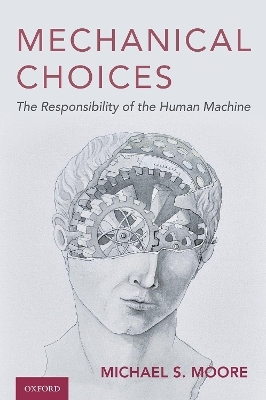
Mechanical Choices
Oxford University Press Inc (Verlag)
978-0-19-086399-9 (ISBN)
Michael S. Moore is Charles R. Walgreen, Jr. Chair in Law at the University of Illinois and Co-Director of the Program in Law and Philosophy.
Preface and Acknowledgments
Chapter 1: Introduction
Part I: Criminal Law and the Morality of Ascribing Responsibility
Chapter 2: The General Structure of Criminal Law in Terms of Ascriptive Moral Principles
Part II: The Criminal Law's Suppositions About the Psychology of Persons
Chapter 3: Human Actions at the Root of Moral Wrongdoing and Criminal Law's Actus Reus
Chapter 4: Intention and Belief at the Root of Moral Culpability and Mens Rea
Chapter 5: Further Questions About the Basic Distinction Between Intention and Belief
Chapter 6: The Royal Road to the Criminal Law's Concept of the Psychology of Persons: The Insanity Defense
Part III: The Challenges to Criminal Law by Neuroscience
Chapter 7: The Challenging Data of Neuroscience and the Challenges Mounted From that Data
Part IV: The Hard Determinist Challenge
Chapter 8: The Libertarian, Fictionalist, and Compatibilist Responses to Hard Determinism
Chapter 9: Rescuing the Volitional Excuses from Compatibilism (The Overshoot Problem for Compatibilism)
PART V: The Epiphenomenalist Challenge
Chapter 10: The Initiation of the Epiphenomenalist Challenge in the Work of Benjamin Libet
Chapter 11: The Limited Compatibilism of Epiphenomenalism with Responsibility
PART VI: The Reductionist Challenge
Chapter 12: "Nothing But a Pack of Neurons"
Part VII: Neuroscience as the Helper rather than the Challenger of the Criminal Law
Chapter 13: The Potential Contributions of Neuroscience to our Understanding of Addiction
| Erscheinungsdatum | 03.01.2020 |
|---|---|
| Verlagsort | New York |
| Sprache | englisch |
| Maße | 239 x 152 mm |
| Gewicht | 998 g |
| Themenwelt | Geisteswissenschaften ► Philosophie ► Ethik |
| Recht / Steuern ► Allgemeines / Lexika | |
| Recht / Steuern ► EU / Internationales Recht | |
| Recht / Steuern ► Strafrecht | |
| ISBN-10 | 0-19-086399-4 / 0190863994 |
| ISBN-13 | 978-0-19-086399-9 / 9780190863999 |
| Zustand | Neuware |
| Haben Sie eine Frage zum Produkt? |
aus dem Bereich


